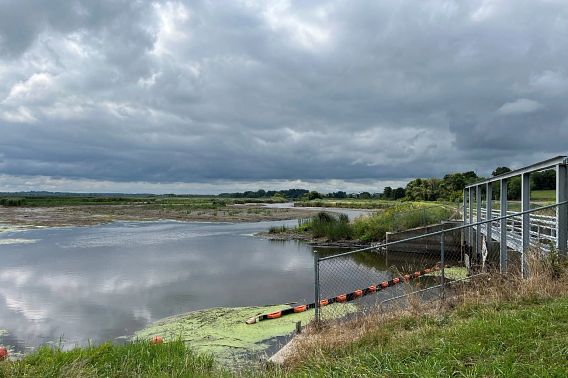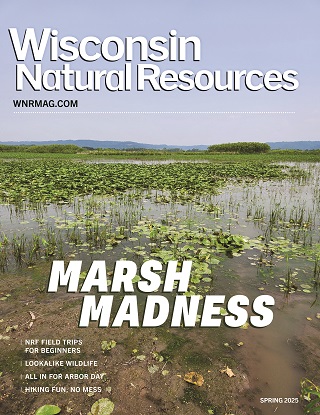Contact: Steffen Peterson, DNR Wildlife Biologist
Steffen.Peterson@wisconsin.gov or 262-666-3157
DNR Announces Drawdown For Theresa Marsh Wildlife Area
Reduction Of Water-Levels Necessary For Main Dike Repairs
 The DNR is conducting a full drawdown at Theresa Marsh this fall.
Photo credit: Angela Rusch
The DNR is conducting a full drawdown at Theresa Marsh this fall.
Photo credit: Angela Rusch
MADISON, Wis. – The Wisconsin Department of Natural Resources (DNR) today announced that it will conduct a full drawdown at Theresa Marsh Wildlife Area in Washington and Dodge counties. Water reduction began mid-July, and water levels will be lowered gradually until a full drawdown is achieved in late August.
The drawdown is necessary to complete construction and repairs on the wildlife area's main dike, which impounds approximately 1,500 acres of water. The 1-mile-long dike and associated dam, first constructed in 1968, are located at the outlet of the East Branch of the Rock River on the northwest side of the property.
Construction on the dike is planned to occur from September through November.
"The main dike, in combination with the Theresa Marsh Dam, is the wildlife area's most impactful management tool, so maintenance of this key piece of infrastructure is vital to maintaining quality marsh habitat for waterfowl and other wetland wildlife," says Steffen Peterson, DNR wildlife biologist and property manager. "Successful completion of this project requires the adjacent ground to be free of water and frost, which makes fall our best construction window."
Wisconsin wildlife areas are managed to sustain the wildlife and natural communities found on the properties and to provide a full range of traditional outdoor recreational uses. These include hunting, fishing, trapping, hiking and studying nature.
"The Theresa Marsh Wildlife Area has a rich history of hunting and trapping. The timing of this drawdown will reduce access to the marsh. We plan to hold water in the impoundments, located in the northern refuge along Highway 28, to provide an open-water habitat for waterfowl," said Peterson. "We will also work closely with the contractor to incrementally reflood the marsh when possible."
Hunters should plan to target ducks during the early teal season and look for water levels to improve in November, as reflooding provides more open water, cover and food resources for mid- to late-season migrants.
The DNR reminds recreators to be mindful of the limited road access in the construction area and to follow posted signage indicating temporary parking and travel routes.

